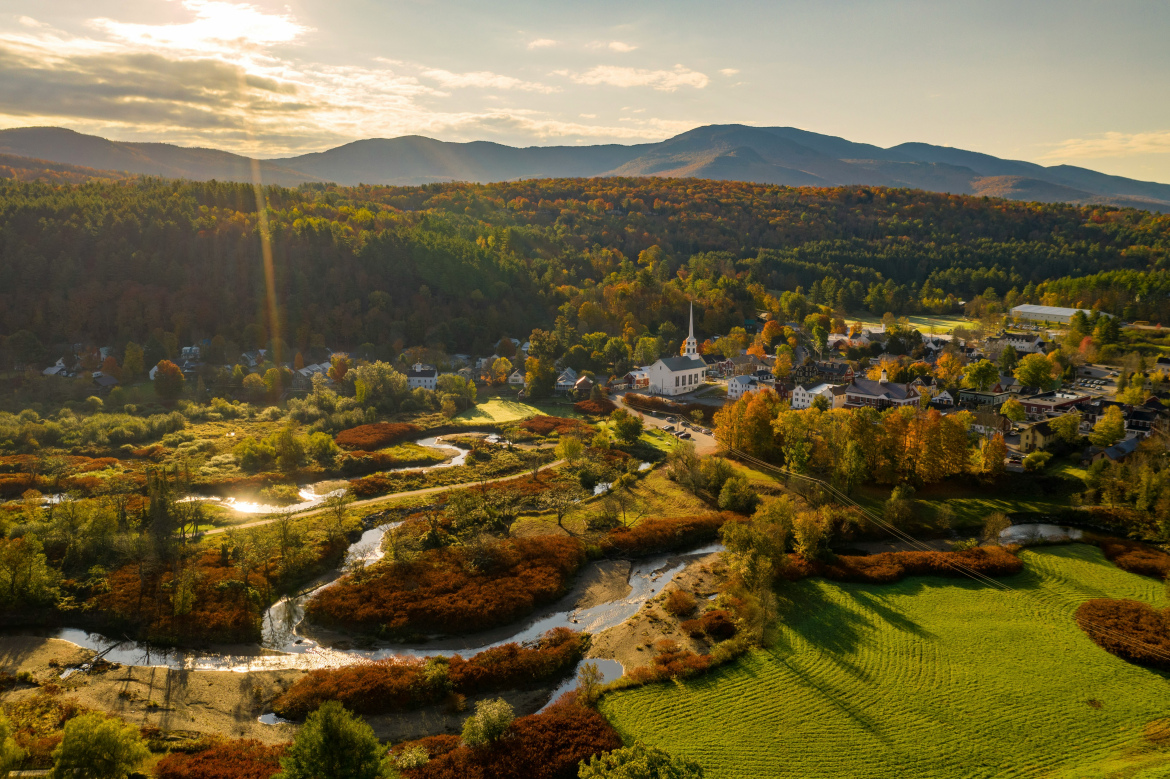
The city of Waterbury has long tolerated mountain biking on a parcel of land located off Waterworks Road in Stowe. But in early October, the Edward Farrar Utility District (EFUD), which manages the land to provide drinking water to the town of Waterbury, shut down all mountain biking on the land in response to illegal trail building.
Yes, the land management is confusing: the land is located in the town of Stowe, it’s owned by and provides water to the town of Waterbury, and it’s managed by EFUD. This conglomeration of stakeholders is one of the reasons the trails have never been officially legalized, despite being ridden by mountain bikers since at least the year 2000.
So what’s the problem now?
Even though mountain bikers have a 25-year history of riding and building on the land, the rate of trail construction in recent years has alarmed EFUD. There’s currently over seven miles of unofficial singletrack in the Waterworks trails, but in the last couple of years, “there’s been probably an additional mile or two added, at least, that we are aware of,” said Kenzie Brunner, Executive Director for the Stowe Trails Partnership (STP).
EFUD manages the land to provide clean drinking water to Waterbury’s 2,000 residents, and workers recently identified a newly-built trail that was located too close to the stream and built in an unsustainable way. Since EFUD doesn’t manage the land for recreation, just for the water supply, they decided to simply close the trails by using sticks, orange tape, and signs to block the access points to the property.
These trails might have been built illegally, but for the most part, they’re sustainable
“The more historical stuff is actually very sustainably built,” Brunner said. “Last year, STP and our neighboring chapter, WATA (Waterbury Area Trails Alliance) […] helped commission a sustainability study of the trails back there by a local trail builder, and we found for the existing historic trails, there was only one full trail and little snippets of another trail that were not sustainably built that we needed to either alter or close down.”
Brunner was clear that the trails were illegally built, but the rogue builders “haven’t done a bad job of building trails. In total, the trails are just as sustainably built as a lot of our existing sanctioned trails here in Vermont.” That is, aside from the latest additions.
A place to “make things that are interesting to them”
“Historically, unsanctioned trails [have] always been this place where people can explore and expand and make things that are interesting to them,” said Brunner. “And that’s what’s kind of happened there over the years. There are some really gnarly lines. There are some really fun lines that locals love, and it’s all off the map, which is fun for that.”
Most of these well-loved renegade lines offer “lots of really aggressive tech.” There are only a few manmade features in Waterworks — the rest of the riding is raw and gnarly, making use of the natural terrain.
“The rock here is steep and funky and off camber,” Brunner continued. “Some of the trails in Waterworks are super gnarly — like there’s one that I don’t think I’ve ever cleaned fully. There’s just so much back there.”
Fines for illegal trail building as high as $50,000
While illegal trail building has long been tolerated at Waterworks, on the whole, Vermont doesn’t greet rogue trail builders with a light slap on the wrist like one might get on Vancouver’s North Shore. Brunner told me that illegal trail builders are fined per tree that’s been cut down to create the trail.
According to Vermont statute 13 V.S.A. § 3602, fines are levied depending on the diameter of the tree that’s been cut:
- Trees up to 6 inches in diameter: $50
- Trees 6-10 inches: $100
- Trees 10-14 inches: $300
- Trees 14-18 inches: $750
- Trees 18-22 inches: $1,500
- Trees over 22 inches: $2,000
- Bushes or shrubs: $50
Note that a “tree” is categorized as a woody growth of at least two inches in diameter, but as you can see above, builders can be fined for simply clearing bushes and shrubs. In the dense Vermont forests, it’s impossible to build trails without removing some sort of vegetation.
Since the fines are levied per tree, naturally, the totals can vary drastically. “I’ve heard of people being fined $5,000 to $50,000,” said Brunner.
Unmapped but not illegal — a path forward
Brunner is hopeful that local mountain bikers will be able to reach an understanding with EFUD and get the trails reopened to riders. However, the trails are unlikely to ever be mapped or signed. Instead, in a best-case scenario, they’ll exist in a gray zone, where mountain biking is legal but the trails aren’t publicized.
“We want to bring it back for everyone in a way that can really be managed sustainably,” said Brunner. “One thing that we’re really harping on is that […] we’re not trail police, but we do want to work with [EFUD] to help create a management plan of some type. These trails will never be really sanctioned in the state that they are, but they can be, hopefully, brought back online so that the community can fix them.”
Brunner and STP plan to pitch a strategy to EFUD that they’ve used at a nearby trail system, called Strawberry Hill. Strawberry Hill is another unmapped mountain bike trail network in Stowe. However, these trails have been built with permission on a private farm. But even though the STP has a memorandum of understanding with Strawberry Hill Farm, that MOU specifically states that the trails can’t be put on maps.
“And that’s fine,” said Brunner. “That leaves a piece of what is a very busy resort town to the locals, and it’s a way for us to show visitors, when we hold events, that they can come back here.”
“We’re kind of hoping that [Strawberry Hill] can be used as a case study for EFUD to see that trails can be sustainable and used by the public and don’t have to be on the map, for the locals that are really like, ‘Don’t blow up my spot,’ and taken care of in a really good way.”
Next steps
As of press time, the Waterworks trails are still closed to the public, and reopening is pending talks with EFUD.
“EFUD has meetings every other week that some of our board or WATA’s board or community representatives go to to hear about what’s going on,” said Brunner. “We’re trying to get them to temporarily open [the trails] for use until we can sit down and actually have a larger discussion in December about what the plan is and how we can help manage the recreation aspect of this parcel.”
While the current management and the impact of illegal trail building have proven challenging for the communities of Stowe and Waterbury to navigate, Brunner ended our interview on a positive note, expressing confidence that local riders and land managers will eventually reach an arrangement that works for everyone.


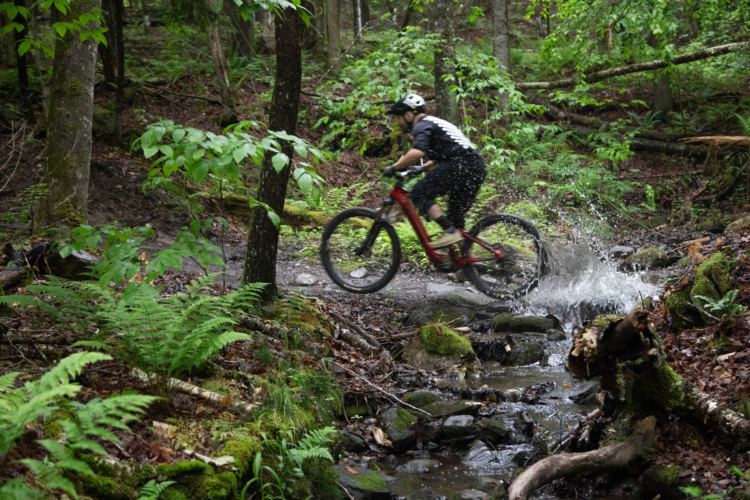

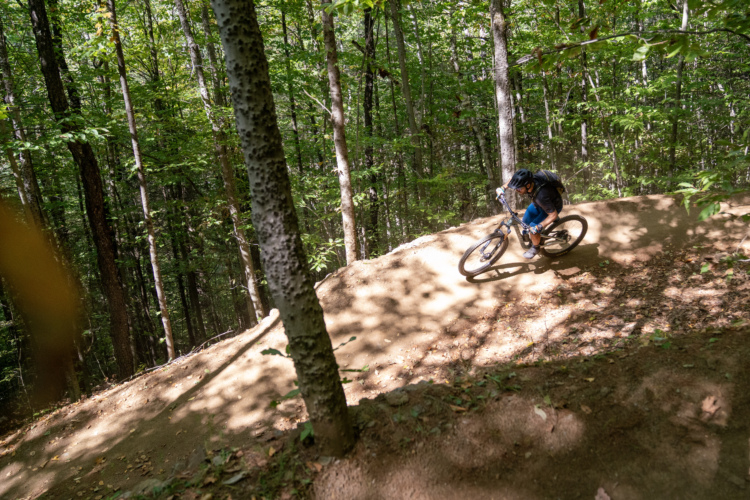
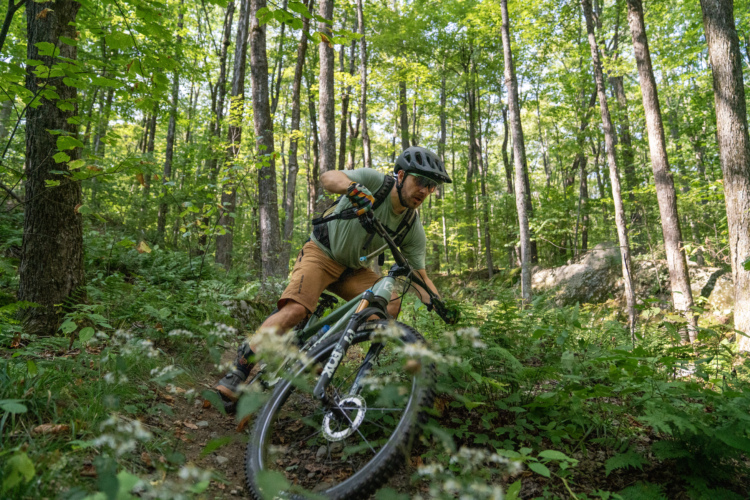
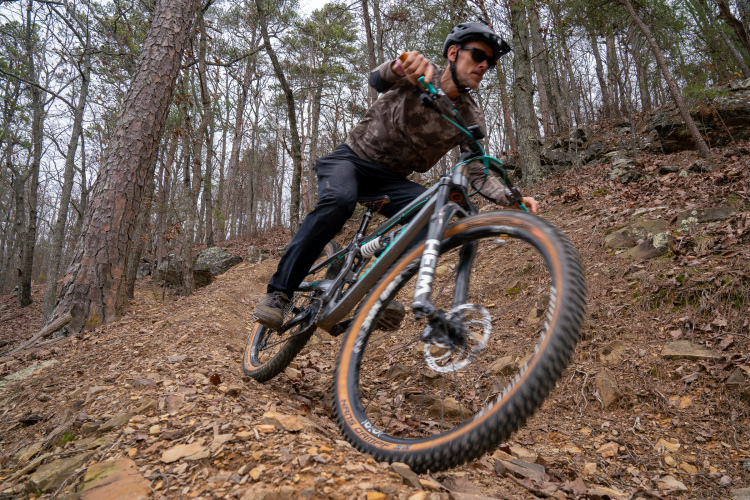

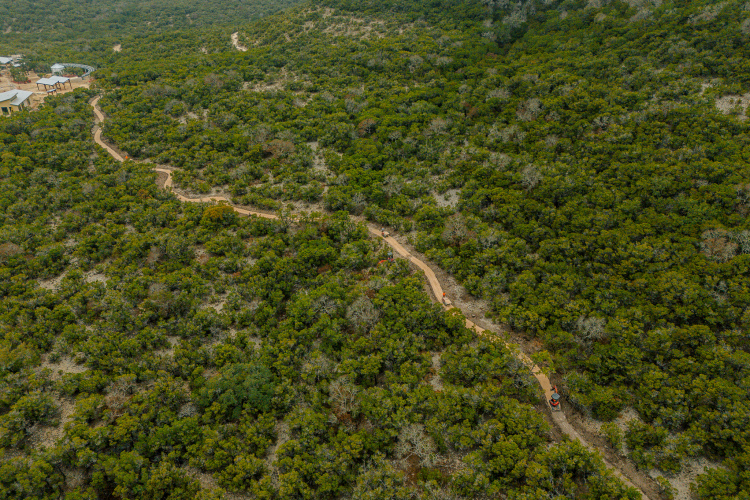


7 Comments
Oct 20, 2025
Oct 17, 2025
Lol. Hellooooo Strava heatmaps!
Oct 18, 2025
Oct 20, 2025
Oct 17, 2025
Oct 17, 2025
Oct 18, 2025